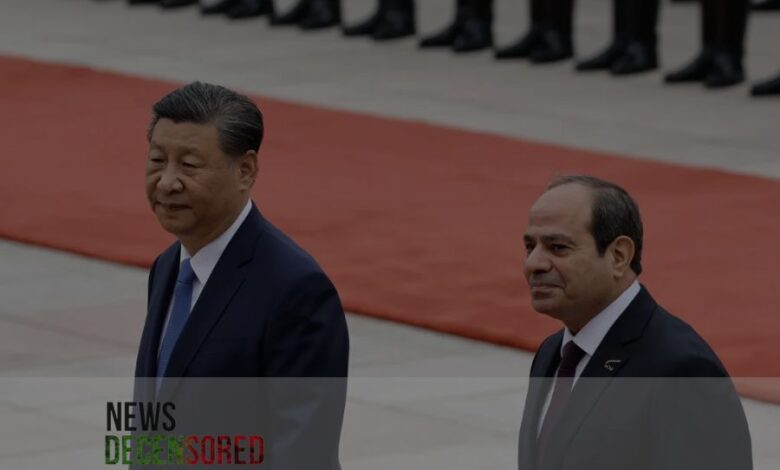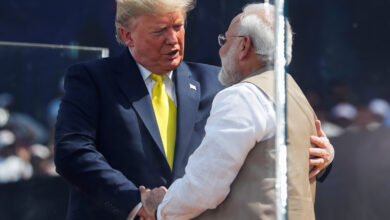China Hosts Arab Leaders at Summit Focused on Trade and the Israel-Hamas Conflict

TAIPEI, Taiwan (AP) — Chinese President Xi Jinping called for an international peace conference focused on the war between Israel and Hamas and pledged more humanitarian aid while opening a summit with Arab leaders Thursday in Beijing.
With the escalation of war, there can be no justice, and the two-state solution cannot be destabilised,” Xi said in an opening speech at the China-Arab Cooperation Forum.
He called on Arab countries to deepen cooperation in trade, clean energy, space exploration, and health care.
The summit, attended by leaders of countries including Egypt, the United Arab Emirates, Bahrain and Tunisia, focused on expanding China’s trade ties and security concerns over the war between Israel and Hamas.
Beijing and Arab countries support the Palestinians in the conflict as Israel draws increasing international condemnation. Bombing of the city of Rafah in the southern Gaza Strip, killing at least 45 people over the weekend. According to the Gaza Ministry of Health, the total number of Palestinians killed in the war exceeded 36,000 people.
Beijing has long supported the Palestinians and condemned Israeli settlements in the occupied territories. Initially, he did not criticise the Hamas attack on October 7 – which killed about 1,200 people – while the United States and other countries described it as an act of terrorism. However, China enjoys growing economic relations with Israel.
China’s priorities in the region are primarily economic,” said Maria Papageorgiou, a lecturer in politics and international relations at the University of Exeter. “It wants to continue the momentum achieved in recent years with the Gulf countries and expand its investments, especially in trade, technology (5G networks) and other internet initiatives.
Papageorgiou said that China also wants to present itself as an alternative to the West and a more reliable partner in the region that does not interfere with or put pressure on countries’ internal affairs.
On Wednesday, he met with Egyptian President Abdel Fattah El-Sisi at the forum. The two leaders signed cooperation agreements in areas such as infrastructure, technology, and food imports.
China has invested billions of dollars in Egyptian government projects, including the Suez Canal Economic Zone and the New Administrative Capital east of Cairo. According to the Egyptian Statistics Authority, investments between Egypt and China are expected to reach $14 billion in 2023, up from $16.6 billion in 2022.
The forum includes Tunisian President Kais Saied, UAE President Sheikh Mohammed bin Zayed Al Nahyan, and Bahrain King Hamad.
The China-Arab Cooperation Forum was established in 2004 as an official dialogue mechanism between China and Arab countries.
China is Tunisia’s fourth largest trading partner after Germany, Italy and France. Beijing has funded hospitals and sports complexes in Tunisia, and its companies have been contracted to build strategic infrastructure such as bridges and deep ports on the Mediterranean.
The UAE also has extensive and growing economic ties with China and has faced US criticism over the alleged construction of a Chinese military facility in Abu Dhabi.
Aside from China’s extensive trade ties in the Middle East, it increasingly seeks to play a diplomatic role in the region. Last year, Beijing helped broker a deal that saw Saudi Arabia and Iran re-establish relations after seven years of tension in a role previously reserved for global heavyweights such as the United States and Russia.
Associated Press reporters Fatima Khaled in Cairo, Jon Gambrell in Dubai, Sam Metz in the United Arab Emirates and Morocco, and video producer Cheng Liu in Beijing contributed to this report.




